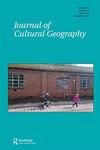协商学术环境:利用列斐伏尔将聋人空间和致残/使能环境概念化
IF 0.9
Q3 GEOGRAPHY
引用次数: 7
摘要
摘要聋人学者如何驾驭工作场所的物理环境?对五名在英国高等教育机构工作的聋人学者进行了原始采访,采用步行采访的方式,探讨他们体验高等教育机构物理环境的方式,以及他们如何在工作场所创造自己的聋人空间。结果表明,聋人学者在参与和进入高等教育机构方面面临着明显的障碍,使用列斐布夫方法的分析表明,聋人学术界有自己的方式来颠覆高等教育机构的空间期望,创造自己的生活聋人空间。本文章由计算机程序翻译,如有差异,请以英文原文为准。
Negotiating academic environments: using Lefebvre to conceptualise deaf spaces and disabling/enabling environments
ABSTRACT How do deaf academics navigate the physical environments of their workplaces? Original interviews with five deaf academics working in Higher Education Institutions (HEIs) in the UK were conducted using walking interviews to explore the ways in which they experienced the physical environment of their HEI and how they produced their own deaf spaces within their workplace. Results show that deaf academics face distinct barriers to their involvement in and access to their HEIs, and analysis using a Lefebvrian approach shows that deaf academics have their own ways of subverting the spatial expectations of the HEI to create their own pockets of lived, deaf space.
求助全文
通过发布文献求助,成功后即可免费获取论文全文。
去求助
来源期刊

Journal of Cultural Geography
GEOGRAPHY-
CiteScore
1.70
自引率
22.20%
发文量
15
期刊介绍:
Since 1979 this lively journal has provided an international forum for scholarly research devoted to the spatial aspects of human groups, their activities, associated landscapes, and other cultural phenomena. The journal features high quality articles that are written in an accessible style. With a suite of full-length research articles, interpretive essays, special thematic issues devoted to major topics of interest, and book reviews, the Journal of Cultural Geography remains an indispensable resource both within and beyond the academic community. The journal"s audience includes the well-read general public and specialists from geography, ethnic studies, history, historic preservation.
 求助内容:
求助内容: 应助结果提醒方式:
应助结果提醒方式:


